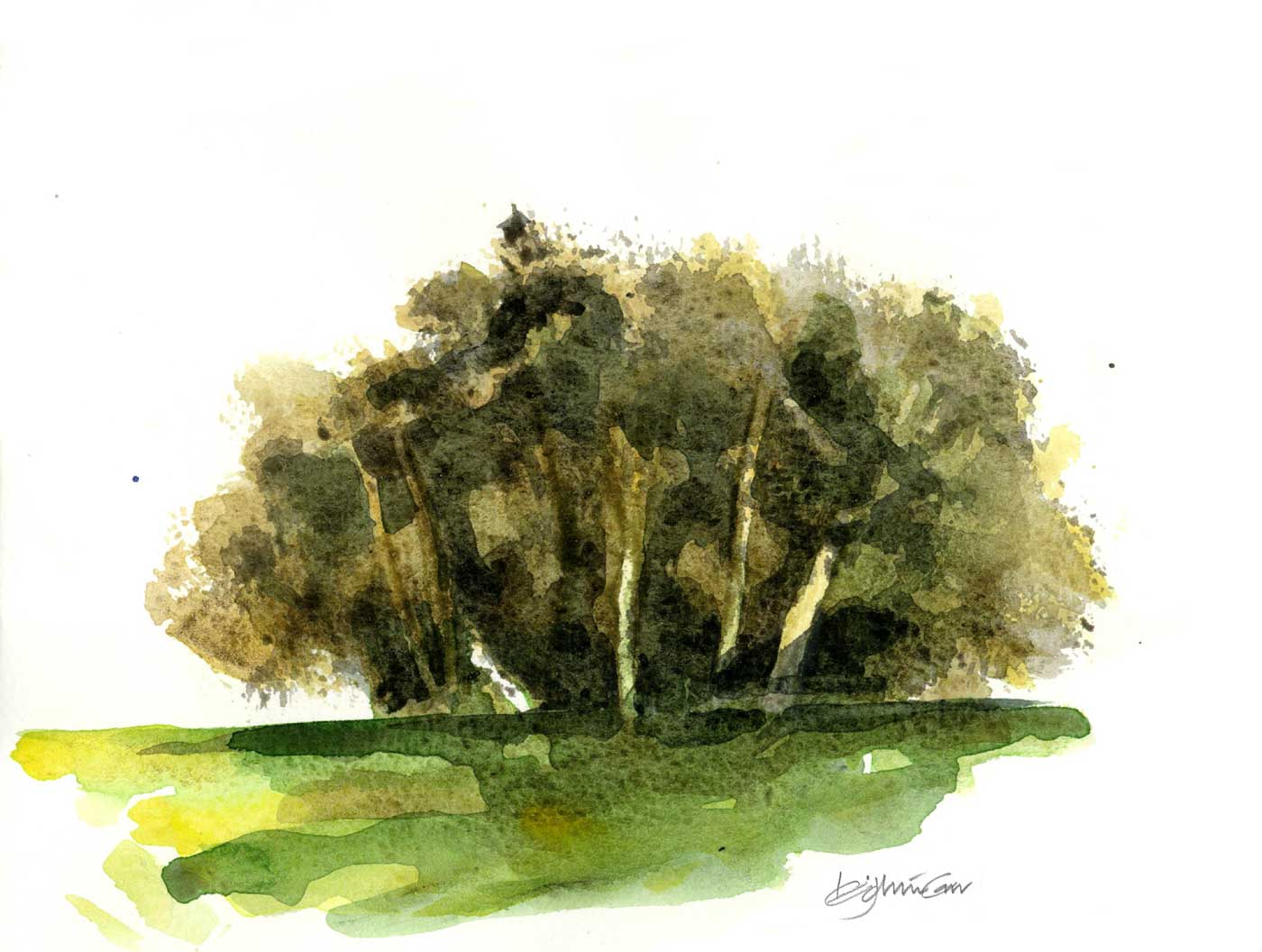Author: Leighton Carr
Autumn, Nearly Winter
Prayer – after meeting friends for the evening
Father, when you watched us tonight\nAs we laughed and larked around\nWere you happy with us?\n\nAnd as you listened to us pontificate\nTalking about other people we know and those we don’t\nWere you disappointed at any of our conversations?\n\nWhen we insisted on confidentiality\nWere we deceiving ourselves\nInto saying words that should never have been heard in company?\n\nWhen we laid out our plans for the future\nWith such confidence\nDid we please you?\nOr did our arrogance and self promotion make you turn away?\n\nOn behalf of my friends, and myself,\nI ask that you forgive our naivety,\nEncourage us in our unity,\nAnd bless each one of us with easy sleep and a clear conscience throughout this night.\n\nAmen.
Frontline Staff
We’ve got it wrong.\r\n\r\nIt’s not the clergy who are on the frontline, but Ordinary Church Members.\r\n\r\nIt’s the Ordinary Church Member who has to go out into the marketplace and be the light of the world.\r\n\r\nIt’s the Ordinary Church Member who has to be at home with difficult decisions about money, complicated spouses and unreasonable children.\r\n\r\nThe clergy staff have the support of fellow clergy, Bishops, other staff members built into their job description. The Ordinary Church Member doesn’t have that support. More often than not they are the only Christian where they work or live, they rarely meet their church leaders and pastors for anything other than a cursory hello, and they rely on brief and inadequate weekend encounters with other Christians at church to receive their encouragement.\r\n\r\nIt’s a misconception to say that the church staff are on the frontline because (for example) they go into a primary school once a month. Generally they are well respected and well accepted in other institutions. They are given a platform, with even a measure of government support in the curriculum.\r\n\r\nNo, like most other large organisations it’s those lower down the chain who are on the frontline, face to face with the public, often with little support, little encouragement, nowhere to turn.\r\n\r\nSo if that’s true, what sort of leaders should we be?\r\n\r\nAnd what sort of churches should our churches be?
Cliff Edge Volunteers
One encouraging fact to come out of the Olympics was this: people like to volunteer.\r\n\r\n240,000 people applied to be Olympic volunteers around London, of which only 70,000 (ONLY 70,000!) were chosen.\r\n\r\nThe National Trust runs with the help of over 60,000 volunteers.\r\n\r\nAnd yet, most churches are struggling to get hold of volunteers.\r\n\r\nBut then, most churches don’t have anything as exciting as the Olympics to offer (although we have plenty of old buildings we may end up giving to the National Trust). We may bandy about statements about the worthiness of the church, but the reality is that most churches are dull and introverted organisations. We are creating proportionally more bureaucracy to serve fewer people in dwindling congregations. The opportunity to serve as a volunteer in church now seems to be propping up creaking structures that should by all other measures be disbanded.\r\n\r\nAnd that is of little or no interest to most people under forty, let alone those under twenty.\r\n\r\nLeaving aside the lack of opportunities for meaningful engagement in church, selecting the right person for the right job in church is not as easy as choosing thousands of volunteers to stand on street corners and point people around London. New volunteers are all very well in principle, but not every volunteer is appropriate for key roles in the church. And those volunteers who are appropriate are rarely available, being already overcommitted on existing committees.\r\n\r\nNo, what we need is a new focus. And perhaps it should be based on Jesus’ own example. We rarely see Jesus cajoling his disciples to volunteer (feeding 5,000 perhaps). Instead we find him commissioning them way before they were ready to leave the comfort and close proximity to the main group and head off by twos into unknown territory to discover the joys of Cliff Edge service.\r\n\r\nFollowing this pattern, we need to create some new Cliff Edges to walk along outside the church.\r\n\r\nIn Sports Clubs.\r\n\r\nIn Media.\r\n\r\nWith the Poor.\r\n\r\nWith the Rich.\r\n\r\nIn the Arts.\r\n\r\nIn Government.\r\n\r\nWith Business.\r\n\r\nWith Money.\r\n\r\nIn Britain.\r\n\r\nIn the world.\r\n\r\nWith Secularists.\r\n\r\nWith faithful others.\r\n\r\nYou name it. No really … you name it!\r\n\r\nLet’s make the business of volunteering for the church deeply meaningful and inherently stretching.\r\n\r\nAnd how?\r\n\r\nLet’s find out what our volunteers can do, what interests them, what gifts God has endowed them with, and what Cliff Edge only they can walk along.\r\n\r\nThen let’s support them – rather than ask them to support us.
When Grandma came to the baptism.
Grandma came to her granddaughter’s baptism.\r\n\r\nThe baptism took place in the same church where Grandma herself had been baptised 72 years before. After her own baptism Grandma had stayed in the church for a short while, encouraged by her faithful parents, but eventually left to discover a more interesting world when she started secondary school.\r\n\r\nSo this was Grandma’s first day back in the church for over sixty years. As she walked out she shook the hand of the vicar and said how pleased she was that nothing seemed to have changed since she was baptised.\r\n\r\nNothing except the names of the people involved.\r\n\r\nAnd that got me thinking.\r\n\r\n72 years. That’s ten Rectors at an average of 7 years each, now on the eleventh, each with a curate, so say eleven curates over 72 years, and let’s say each Rector had an assistant or associate clergy person working in the team, so that’s another eleven clergy, one to help each Rector.\r\n\r\nSo that’s\r\n\r\n11 rectors + 11 curates + 11 associates = 33 clergy …. in 72 years.\r\n\r\n33 clergy. And in 72 years nothing’s changed.\r\n\r\nWhatever else you might observe, you would have to conclude that being a member of the clergy is not about bringing change.
Transformation: Hop Barn Weston: turning a wreck into a home (3)
Retreat at St Honorat (2)
Like Kew Gardens in a Storm
The storms of October 1987 brought devastation to a third of the trees in Kew Gardens. Around 700 trees were uprooted, many of them old (100 – 200 years) and fully mature (100ft).\r\n\r\nSome said that a hundred years of history had been lost.\r\n\r\nOthers noted that for a hundred years too few trees had been planted.\r\n\r\nWhen the staff came to investigate further they found that many of the trees had inadequate root systems. Some very tall trees had root systems that had spread great distances outwards but only one meter downwards.\r\n\r\nAn audit also showed that the pre-storm gardens had gaps in its inventory, that whole species from many countries were missing.\r\n\r\nSo Kew Gardens looked great, but it took a greater storm to develop a planting regime that ensured the garden’s vibrancy and to instigate improved ways to nurture trees.\r\n\r\nI know churches that need this.
A church like a tapas bar.
Set back from pavement on the road that connects the main student accommodation district to the university teaching campus is a small bistro with a front courtyard. The internal bar and rooms and the courtyard are on a slightly lower level than the pavement, which gives it a secluded feel even though it’s on one of the busiest streets in town. I knew it thirty years ago when it used to be called the Tapas Bar, because it served … tapas. And Beer. Both of which I enjoyed as a student.\r\n\r\nIt isn’t called the Tapas Bar anymore, it’s called The Town House, although it still sells tapas and beer.\r\n\r\nTo be more precise, it has the name The Town House on the sign board, although we still call it the Tapas Bar. If ever we want to go there we say, “let’s go to the Tapas Bar.”\r\n\r\nThat’s because it has changed management and names so often that we couldn’t keep up. We all knew it as the Tapas Bar before, so the Tapas Bar it remains.\r\n\r\nOf course this raises an underlying truth about the Tapas Bar (or The Town House) . ‘Under New Management’ may be a statement of fact, but it is never a statement of radical action. Whether or not the new owners ever thought they could really change it, they were never able to other than tinkering with decor and fittings and furniture.\r\n\r\nThis was due I suspect to the fragile balance of the enterprise which goes something like this: change alienates the regulars but attracts new customers; but the regulars leave faster than new customers arrive and settle down to become regulars; this net loss of people jeopardises sustainability.\r\n\r\nConclusion: the formula works as it is, so tinker if you like, but don’t change the essentials unless you want to close up shop due to lack of support.\r\n\r\nThe real problem of course is that customers are fickle. They don’t need to go, and might as well go somewhere else if they aren’t getting what they want. It’s their power that counts. Bums on seats.\r\n\r\nI know churches like that.



